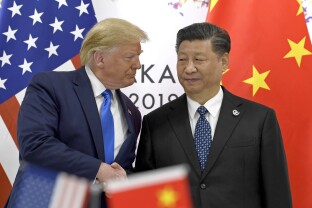Should Donald Trump make his return to the White House, a controversial program to counter Chinese espionage — one that Democrats argued was fueled by racial profiling — could be revived.
The China Initiative, scrapped under Joe Biden’s Department of Justice, was a national security program meant to prosecute perceived theft of trade secrets by Chinese government agents. The Biden administration shut it down amid concerns that the program was leading to too many unresolved cases and false convictions and that the initiative was established on racial bias.
Now, the program has resurfaced in a partisan fight in Congress as top House Republicans aim to launch it again.
